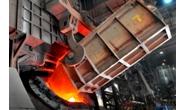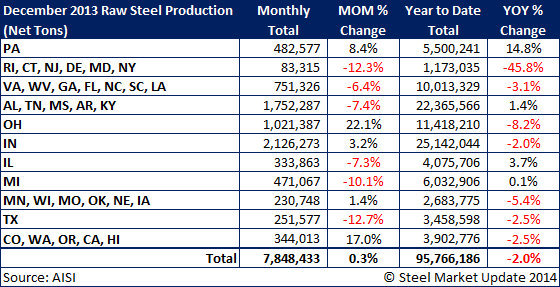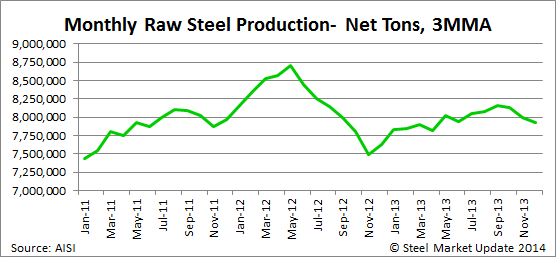Prices

January 28, 2014
2013 Raw Steel Production Down 2% over Last Year
Written by Brett Linton
The American Iron & Steel Institute (AISI) reported their final raw steel production numbers for the month of December 2013. This estimation is different than the weekly raw steel production as it is based on 75 percent of the domestic mills reporting vs. 50 percent for the weekly estimates.
Total raw steel production for the month of December was reported to be 7,848,433 net tons (NT) with 4,785,223 NT being produced by electric arc furnaces (EAF) and 3,063,210 NT produced by blast furnaces. December raw steel production was reported by the AISI to have been 0.3 percent higher than the previous month.
Total raw steel production for 2013 wraps up at 95,766,186 NT which is 2.0 percent below the 97,769,374 tons produced in 2012. The capacity utilization rate for the month of December was reported to be 74.0 percent and 76.7 percent for 2013 YTD.
Below is a chart showing the monthly production figures in a 3-month moving average over the last 3 years. (Source: AISI)









